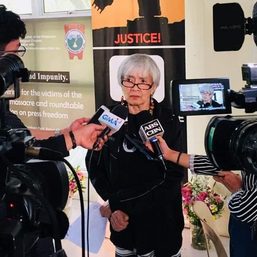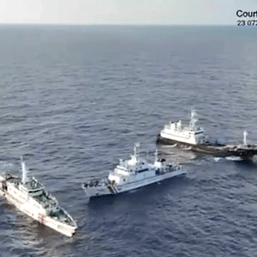SUMMARY
This is AI generated summarization, which may have errors. For context, always refer to the full article.

A survey by Telum Media, a firm that monitors the journalism and media industry, revealed that in the Asia Pacific region, media professionals and journalists in the Philippines are the most concerned about fake news.
Fifty-three percent of those surveyed in the country listed fake news as among the biggest challenges that they are expecting in 2022. The average for Asia Pacific is 31%.
Other countries’ survey results for the same metric are as follows:
- Australia – 20%
- New Zealand – 52%
- Hong Kong – 15%
- Taiwan – 42%
- Malaysia – 26%
The results for four countries (China, Indonesia, Singapore, and Thailand) regarding its views on fake news as a challenge are unlisted, as the research paper discussed points asymmetrically, depending on what the most unique findings were for each country.
With 53% of media practitioners thinking about fake news as a challenge, the paper said that it wasn’t a surprise that more than 70% of the Filipino survey participants rated “news judgment” the most important skill to have for journalists.
Interestingly, in spite of the problems of fake news, the survey found that 29% of journalists in the Philippines would still recommend a career in journalism compared to the Asia Pacific average of 12%. Telum also noted, “Despite fake news, 59% of Filipino media professionals are optimistic for the industry in 2022.”
Social media is also often where fake news circulates. That is likely why journalists in the Philippines also identified social media presence as the most important area of growth. “Sixty-six percent believe this compared to a regional average of 50%,” Telum said. About 75% also agreed that “social media and digital channels have reinforced and elevated the importance of journalism.”
While fake news is seen as a big worry among Philippine journalists, there were two things that topped it. The report noted 76% surveyed listed COVID-19, making it the most pressing challenge in the minds of many, while 64% listed domestic politics, which Telum said is likely linked to the upcoming Philippine elections. Eighty-one percent also feel COVID-19 had a positive impact on media industry perceptions.
Telum quoted Jonathan de Santos, Philstar news editor and chair of the National Union of Journalists of the Philippines, saying, “The Philippines has been called ‘Patient Zero’ for disinformation on social media and journalists have seen how ‘fake news’ has eroded trust in media and has even put some journalists in danger of online harassment or worse. Despite these risks and concerns, Philippine journalists have often held the profession as a vital part of discourse and democracy and recognize that it needs more new talent to continue the work.”
Some 1,133 journalists from across the Asia Pacific region were surveyed for the report including journalists from Australia, New Zealand, Indonesia, Malaysia, Philippines, Singapore, Thailand, and Mainland China, Hong Kong, Taiwan and Macau.
The surveys were carried out from November 2021 until January 2022. – Rappler.com
Add a comment
How does this make you feel?



![[Newspoint] Fake press, undeserved freedom](https://www.rappler.com/tachyon/2024/04/newspoint-fake-press-undeserved-freedom-April-5-2024.jpg?resize=257%2C257&crop=318px%2C0px%2C720px%2C720px)



![[EDITORIAL] Filipino journalists to China: Yes, we are trouble](https://www.rappler.com/tachyon/2024/04/animated-wps-march-tension-2024-carousel.jpg?resize=257%2C257&crop_strategy=attention)


There are no comments yet. Add your comment to start the conversation.